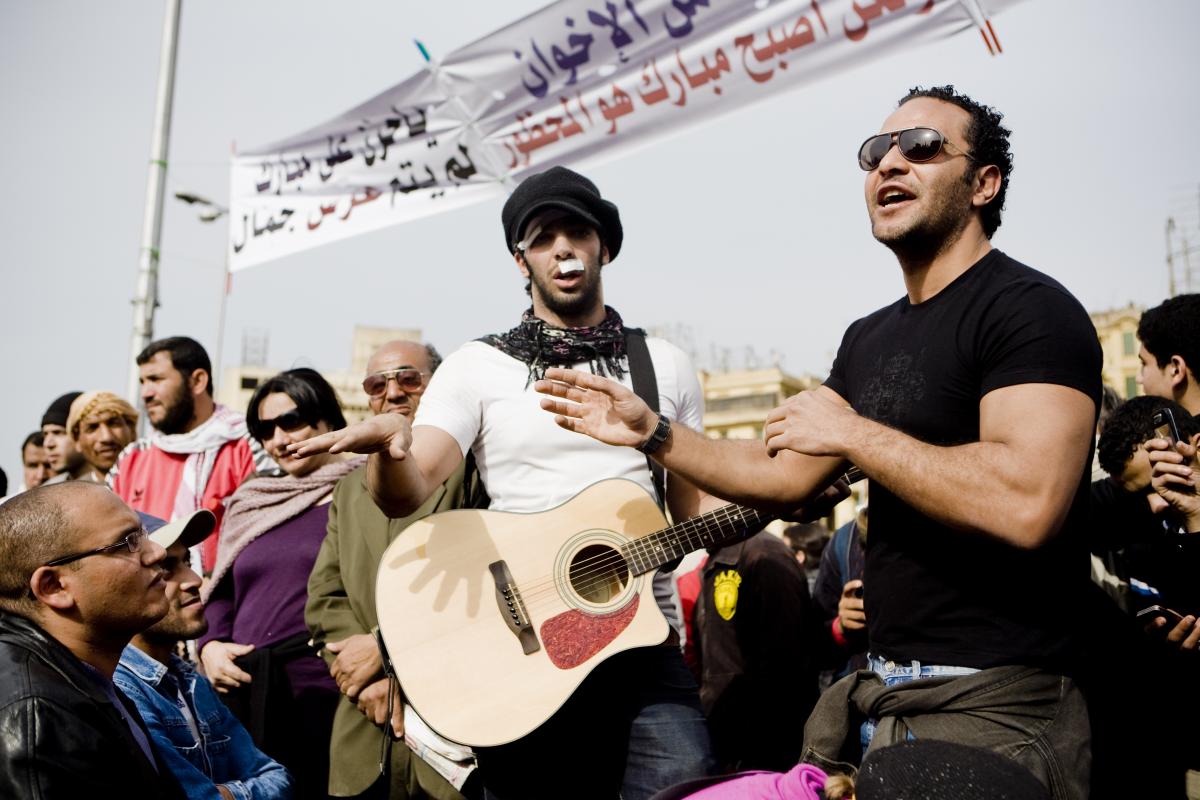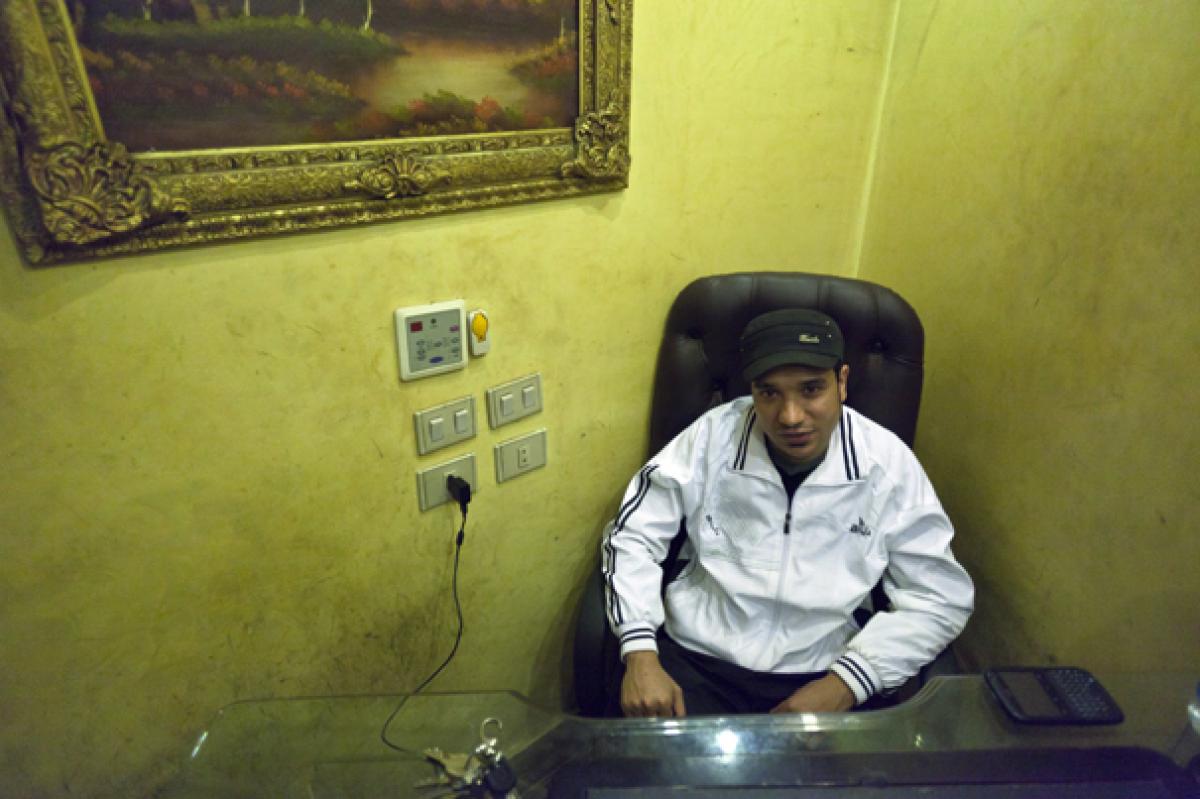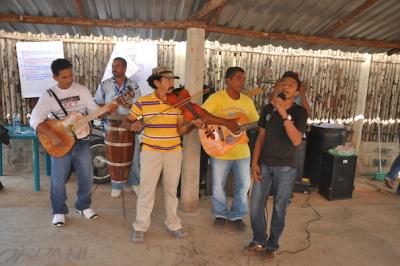
Tamer Hosny – The Army, the Revolution and His Fans
Working as a musician during times of a revolution can be a hard thing to do. The Egyptian pop singer Tamer Hosny has to maintain a balance between those in power and his fan base. A thin line.
To the series of posts Daniel Gilman has written about Tamer Hosny and Egyptian pop music (see Martyr Pop – Made in Egypt), I would like to contribute a short analysis of one of Hosny’s latest songs. For the reader unfamiliar with 'Egyptian pop music', it is important to note that it is difficult to say how popular this music still remains. With its sweet lyrics about love and happiness, ideal worlds and references to luxury and wealth, this music has to defend itself against the down-to-earth, urban, working-class voices of the sha'bi music scene – and recently also against the mahraganat dj’s and mc’s (see Electro Sha'abi: Autotune Rebels from Cairo).
No Love Songs During a Revolution
Just as many other artists, Tamer Hosny got also involved politically. He went to Tahrir Square during the uprising against Hosni Mubarak but got badly beaten up when he tried to convince his fans to go home (see article here). As soon as Mubarak left power, he recorded a song to restore his reputation, honoring the people who died during the clashes, the Martyrs of 25th of January. In this song you can see how he, uncomfortably, tries to avoid any reference to the origin of the events. People got killed but nobody knows by whom – but anyway, he now is pro-revolution.
The Fantasy World of Egypt
In his new song «Masr ya Salaam» Tamer describes a new Egypt that has risen from the ashes. Published on YouTube one day after the popular protests against former president Mohamed Mursi of the Muslim Brotherhood started (30/06/2013), the song proclaims that Egypt is back. «And you will like it, without any hesitation» he repeats in English – for the tourists who can come back now?
The most telling element of the song is the video clip that goes with it. With a group of young girls, a Nubian woman, a Bedouin woman, a farmer, police officers and the army amongst others, the fantasy world of Egypt is complete. In their happiness they all look the same, but the essential differences are left out. As an important part of Egyptian society, one may wonder why the Islamists aren't there. And nobody shouts slogans against the soldiers holding plastic guns, or discriminating speeches against Nubian people.
It's nice to believe in this fake harmony, but it's less innocent than it seems. Tamer Hosny, like many other pop artists, has to maintain a balance between the (former) regime and the elite connected with it, who control his main source of income, and his fans. After he tried to escape his military service by faking his military service papers, he couldn't hope for much credit with the regime. But going to Tahrir to defend the regime of Mubarak was clearly not the right choice either – to judge from the reaction of his fans.
Other moments, though, are perfectly blended to suit the two groups of interests. In the video of the Martyrs of 25th of January, you see a soldier on his tank praying with the protesters. A small and hesitant reference to 'the army as your friend' (see video above or here at 1'04) – Tahrir was still in the back of his mind - but within the limits of the possible, since the majority was convinced that the Egyptian army was on the side of the people and that they had made the revolution together, against Mubarak. The army’s reputation may have been damaged during the rule of the military council (SCAF) which followed Mubarak’s departure, but it took the opportunity to restore its image when people united against Mursi. Judging on the quantity of images of Abdel Fattah al-Sisi, currently minister of defense and commander in chief of the army, one would think he was already president. For many Egyptians, Sisi saved Egypt from the terror of Mursi and the Muslim Brotherhood.

This Is no Pop Music
Tamer Hosny understood this moment very well. In «Masr ya Salaam» he describes an Egypt that is back on its feet. With the pyramids, the flags and even a reference to the national anthem at the end, he taps into the nationalism of his fans, connecting it with a benign army, governing this peaceful and harmonious nation. Every element that disturbs this order, be he an Islamist or a protester, disturbs this bright future. With the army re-installing itself in power, you can ironically reach the same conclusion as Tamer: «Egypt will never change». And file the song not only under «pop music», but also under «counter revolutionary propaganda».
Biography
Published on January 21, 2014
Last updated on April 11, 2024
Topics
From Muslim taqwacore to how the rave scene in Athens counters the financial crisis.
About Tunisian rappers risking their life to criticize politics and musicians affirming 21st century misery in order to push it into its dissolution.




